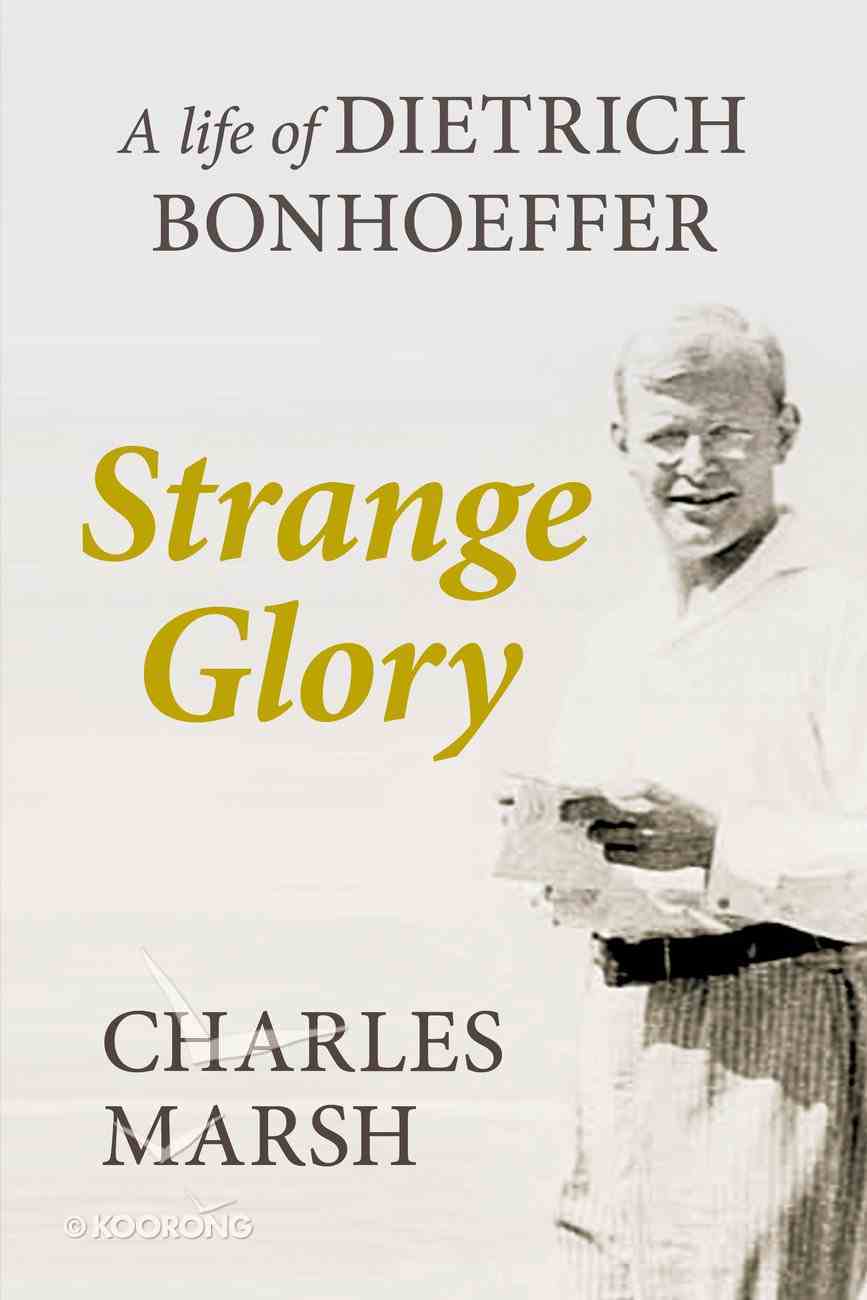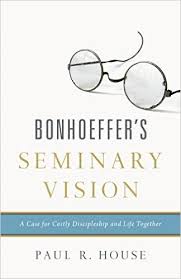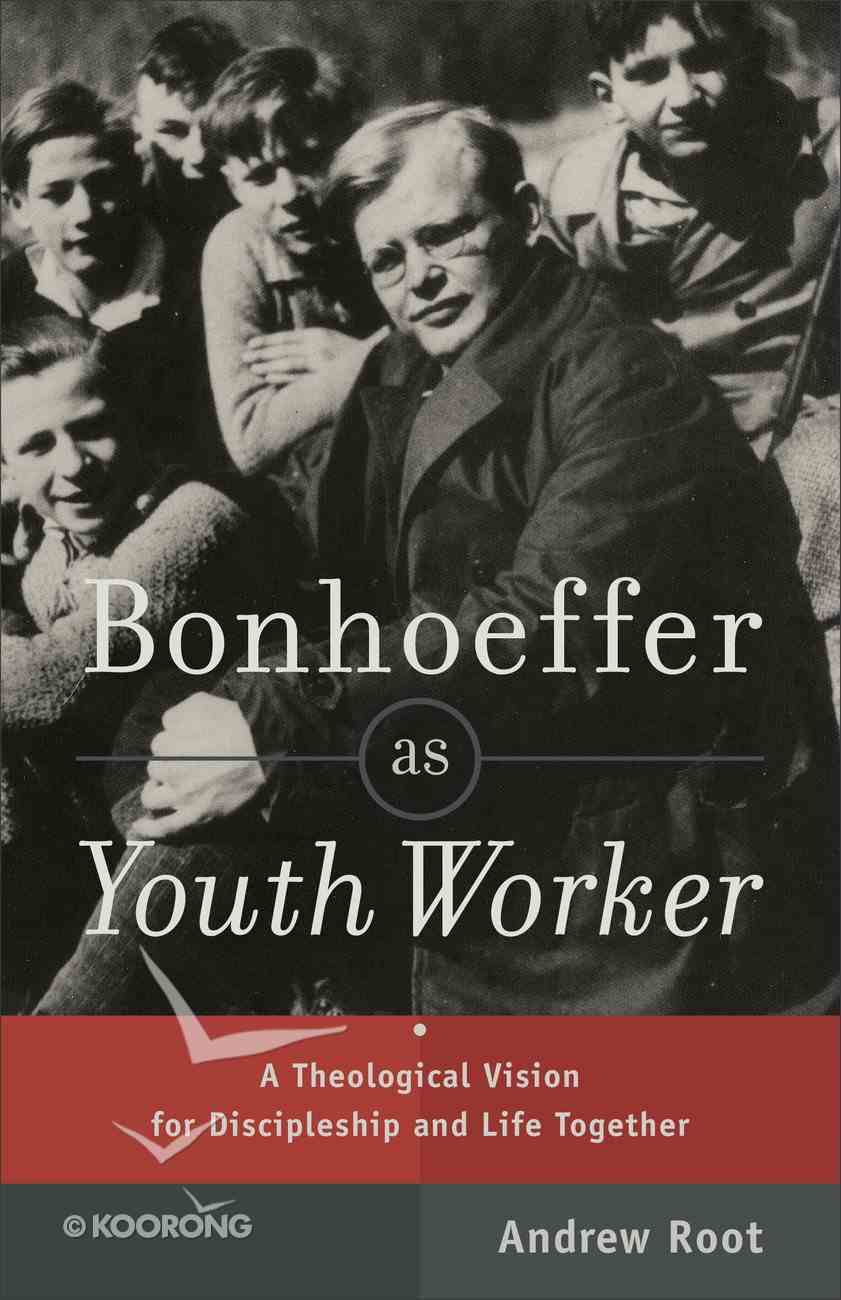 Books on Bonhoeffer continue to flow off the presses, testimony to his enduring appeal and significance. Although I can make no claim to expertise in Bonhoeffer’s work, I do retain an interest in his life and theology, and would like one day to deepen my exposure to his thought, and understanding of his theological vision and contribution. So I was interested, last year, to hear some controversy around a new Bonhoeffer biography by Charles Marsh. Strange Glory: A Life of Dietrich Bonhoeffer (SPCK, 2014) raised uncomfortable questions about Bonhoeffer, especially for some evangelicals. Earlier this year the book won Christianity Today’s award for best book in History/Biography for 2014.
Books on Bonhoeffer continue to flow off the presses, testimony to his enduring appeal and significance. Although I can make no claim to expertise in Bonhoeffer’s work, I do retain an interest in his life and theology, and would like one day to deepen my exposure to his thought, and understanding of his theological vision and contribution. So I was interested, last year, to hear some controversy around a new Bonhoeffer biography by Charles Marsh. Strange Glory: A Life of Dietrich Bonhoeffer (SPCK, 2014) raised uncomfortable questions about Bonhoeffer, especially for some evangelicals. Earlier this year the book won Christianity Today’s award for best book in History/Biography for 2014.
The same issue of Christianity Today (Jan-Feb 2015) features a cover article about Bonhoeffer as youth minister, and considers the implications of his ministry and thought in the Germany of the 1930s for youth ministry and churches today. Andrew Root, author of Bonhoeffer as Youth Worker (Baker Academic, 2014) argues that most of Bonhoeffer’s ministry from 1925-1939 was among children and youth: “Bonhoeffer is primarily not a theologian doing youth ministry, but a youth minister doing theology” (32). He cites a thesis written by Bonhoeffer about youth ministry sometime in the mid-1930s when the Nazis were harnessing the youthful spirit, hearts and minds of the nation:
Since the days of the youth movement, church youth work has often lacked that element of Christian sobriety that alone might enable it to recognize that the spirit of youth is not the Holy Spirit and that the future of the church is not youth itself but rather the Lord Jesus Christ alone. It is the task of youth not to reshape the church, but rather to listen to the Word of God; it is the task of the church not to capture the youth, but to teach and proclaim the Word of God (35, emphasis added).
 The book promises to be a rich and rewarding read not only for youth ministers, but for all who love and serve in the church. The Christianity Today article is also worth reading.
The book promises to be a rich and rewarding read not only for youth ministers, but for all who love and serve in the church. The Christianity Today article is also worth reading.
Finally, Paul House has published a book that has immediate interest and relevance for my own work: Bonhoeffer’s Seminary Vision: A Case for Costly Discipleship and Life Together (Crossway, 2015). The final chapter, entitled “Life Together Today: Some Possibilities for Incarnational Seminaries,” just demands to be read by those in theological education. I hope to read it; perhaps over summer I will have the opportunity. If so, I will post a review. Or better, what if several of us read it and begin a conversation…?
